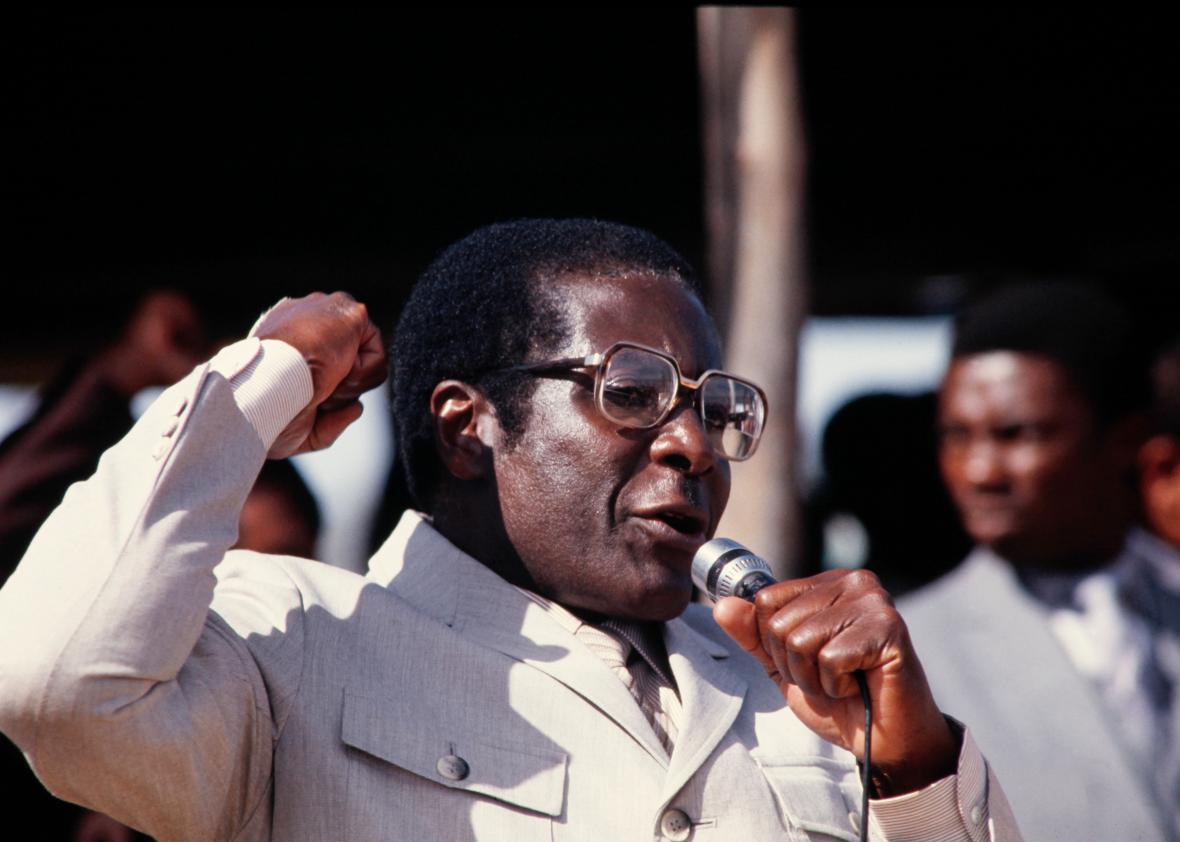Robert Mugabe, the world’s oldest head of state and a leader who went from a symbol of post-colonial Africa to an archetypal dictator whose 37-year reign was marked by human rights abuses, corruption, and devastating economic mismanagement, has resigned as president of Zimbabwe.
The speaker of Parliament announced the resignation Tuesday, shortly after the start of an impeachment process against Mugabe. The end of Mugabe’s rule has appeared inevitable since he was placed under house arrest by the country’s military last week, but he has stubbornly held onto his title. It’s not clear what will happen to him, though local media reports says he plans to go into exile in South Africa.
The fate of Mugabe’s fractured and battered country is uncertain as well. Though this week has seen rare mass protests against Mugabe, what finally forced the president out was not popular opposition demanding his ouster but longtime allies in his own party turning on him: They were furious at his decision last week to fire a powerful vice president to pave a path to power for his wife.
That vice president, Emmerson Mnagagwa, is now considered likely to take over as head of an interim government. It’s unlikely he will be a major improvement over Mugabe. Nicknamed “the crocodile,” Mnagagwa was a loyal Mugabe lieutenant for years and is implicated in some of the worst human rights abuses and corruption of his dictatorship. Then again, this is a moment when the country’s political future is up for grabs, and Zimbabweans, many of whom have never known any other president, are understandably celebrating:
Mugabe is a veteran of the guerilla struggle against white minority rule in what was formerly known as Rhodesia and was the last African leader who had held power since his country’s independence. (For the first seven years, he led the country as prime minister under a mostly ceremonial president.) His exit feels like part of a generational shift, following that of Africa’s longest-serving president, Jose Eduardo dos Santos of Angola, earlier this year. There are still some aging multidecade strongmen hanging on to power, such as Teodoro Obiang Nguema Mbasogo of Equitorial Guinea, Paul Biya of Cameroon, and Yoweri Museveni of Uganda, and some younger leaders like Rwanda’s Paul Kagame and the Democratic Republic of Congo’s Joseph Kabila, who seem in no hurry to ever step down, but peaceful transfers of power are becoming more common. Let’s just hope the next generation’s reigns are better—and shorter.
